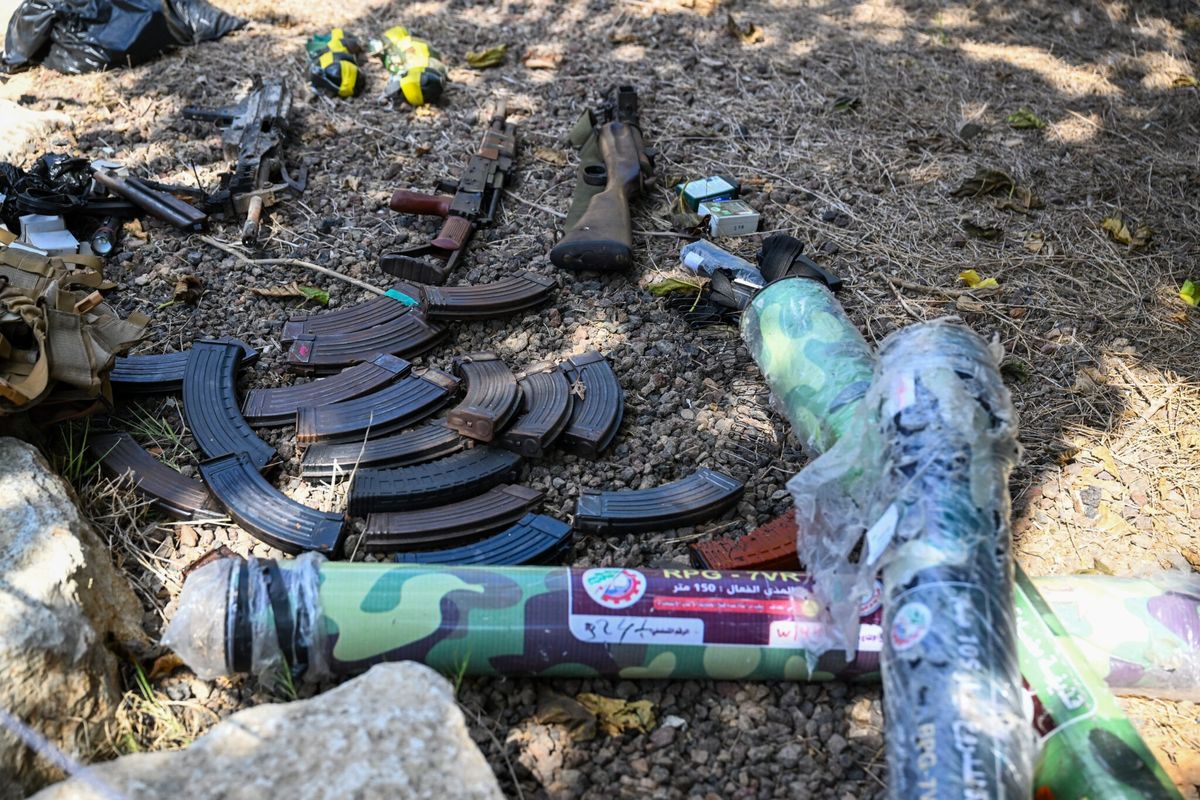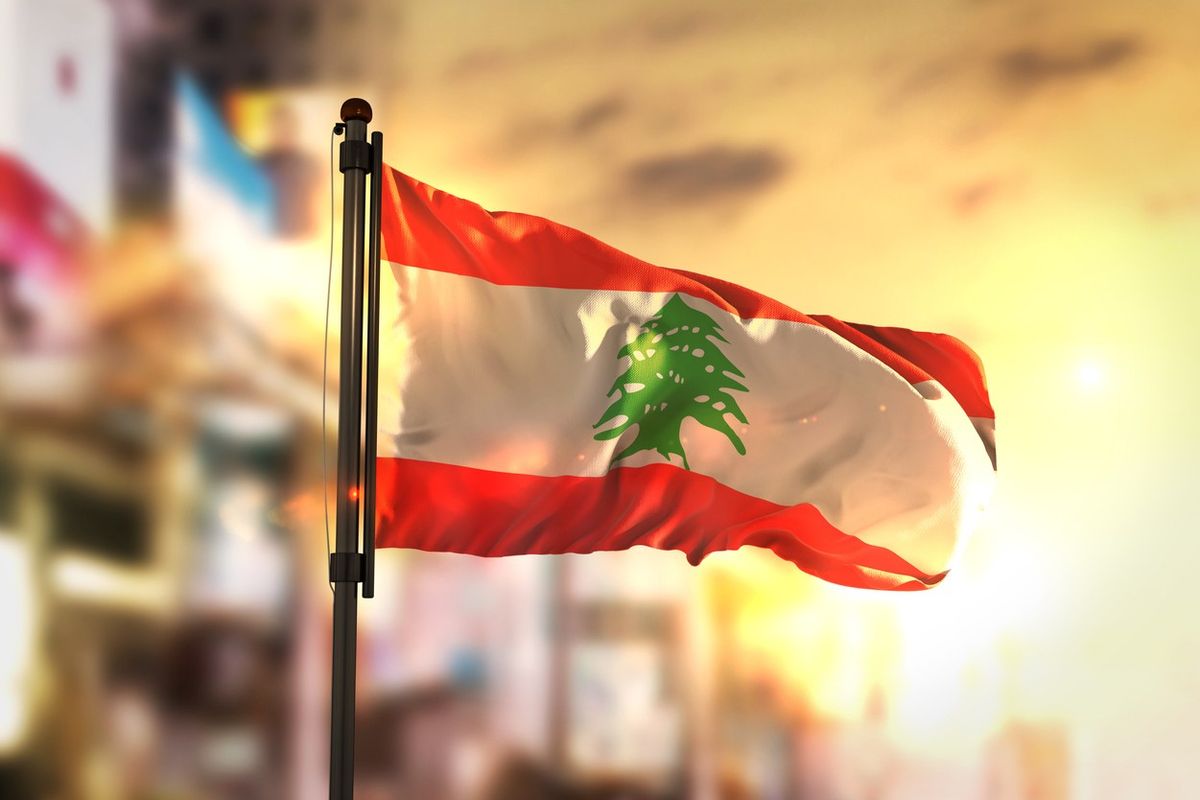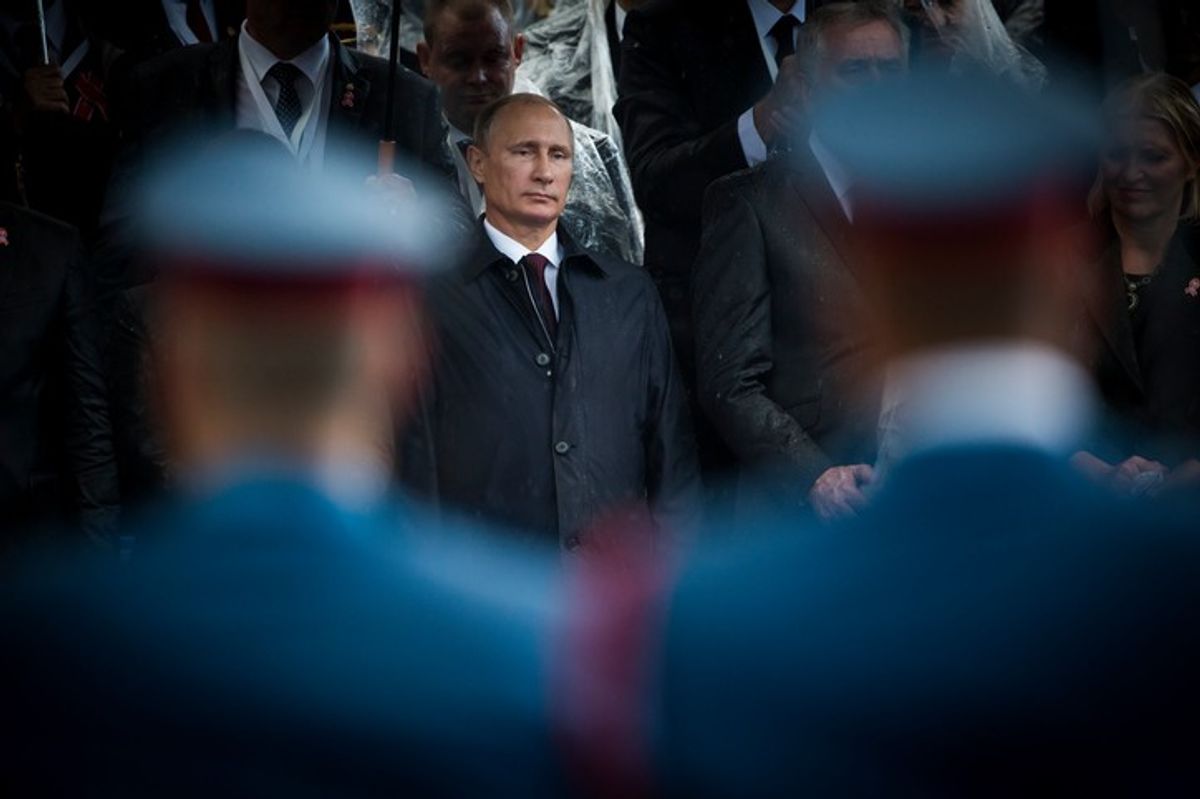The concept of political Islam has deep historical roots in Islamic societies and, during the Arab Spring uprisings of 2011 in the Middle East and North Africa, many moderate political Islamist groups rose to prominence. In Egypt, Mohammed Morsi of the Muslim Brotherhood won the presidency. Since then, however, Morsi has been overthrown and imprisoned, while a harsh political backlash against the revolutionary movements of the Arab Spring has forced many of the region's political Islamists groups out of power or into hiding. The Cipher Brief’s Fritz Lodge spoke with Paul Salem, Vice President for Policy and Research at The Middle East Institute, about political Islam’s origins and its future.
The Cipher Brief: What is your definition of political Islam?
Paul Salem: Political Islam is an essentially modern phenomenon. After the collapse of the Ottoman Empire, which embodied a kind of Islamic order, political Islam became a movement of people – of citizens – who have the goal of rebuilding or recreating some kind of Islamic political, social, and cultural order.
It’s a movement, and it’s political in the sense that it has political goals. These usually focus on transforming, or even overthrowing, the state in order to reform both the state and society.
This movement has its roots in the late 19th century, when some Muslim citizens began to organize to try to counter Western influence, even under the Ottoman empire. However, it became much more focused after the defeat and collapse of the Ottoman empire in World War I, and then the ultra-secular Ataturk regime in Turkey, which abolished the Caliphate in 1924. That was a big trauma in Islamic history. It was almost like cancelling the Papacy. And, even for what some consider moderate Islamists, like the Muslim Brotherhood and others, the long-term goal is to bring back some form of the Caliphate.
TCB: Where is the movement today after some serious defeats across the Middle East and North Africa region following the Arab Spring of 2011?
PS: Political Islam has gone through a lot of ups and downs. It was the weaker movement for most of the 20th century, taking a backseat to Arab nationalism and other forms of nationalism. But all these other movements ran out of steam in the 1960s and 1970s, coinciding with the Islamic Revolution in Iran and the rise in oil prices, which also meant a great shift in power from countries like Egypt and Turkey to petro-states like Iran and Saudi Arabia. Iran after 1979 was very Islamist. Saudi Arabia is very Islamist.
That shift in power from the 1970s onward gave a boost to Islamists, and all kinds of Islamist movements have been gaining steam since then.
In the electoral moment that came after the Arab uprisings of 2011, I think we saw that Islamist parties were strong, and maybe more organized, but if you look at the results in Egypt, Tunisia, and elsewhere, these groups represented less than half of the population. You can say that Islamists represent a good big chunk of these societies, but they are not a majority, and they also face very strong opposition from other sectors of society. This is actually a bit like the U.S., where you have a strong right wing and a strong left wing, and it’s kind of a toss-up between the two.
TCB: And how have they fared post-2011?
PS: Well, they were the best of times and they were the worst of times.
The Muslim Brotherhood won the presidency and parliament in Egypt and then proceeded to squander that. It was toppled, then it was reviled, and now the group is worse off than it was before 2011.
In Tunisia, Ennahda, the largest Islamist group, has accepted the middle ground. It won parliamentary elections. As Tunisia was threatening to devolve into civil war like Egypt, Al Nahda’s leader Rachid al Ghannouchi very wisely stepped back. He said, let’s do this collectively, and so, in Tunisia, the Islamists, nationalists, secularists and leftists have found a way to coexist without anybody imposing his will on others.
In Morocco, you have an interesting example where the monarchy has allowed a space for the Justice and Development Party, or PJD, to act. The PJD has been allowed to run and win elections. It is the ruling party of Morocco’s government, although much power remains with the king. [The Moroccans] have found an interesting way of dealing with this issue, which is going well for them.
Then you have to ask, what the effect of the radicals has been on the Islamist movement. The rise of groups like Al Qaeda, ISIS, and others is a very big blow to political Islamists because it ruins the brand of Islamism and gives opponents more ammunition to go after more moderate political Islamist groups.
TCB: Would you say that the moderate message of political Islamist groups like the Muslim Brotherhood has been coopted by more radical Jihadist narratives?
PS: No. First, I need to warn that each country is its own story. For instance, the Justice and Development Party (AKP) in Turkey is not affected by this branding in the same way that the Muslim Brotherhood in the Arab World might be.
In the Arab world, you can see opponents of groups like the Muslim Brotherhood using the rise of violent Jihadist groups to make the argument that allowing such “moderate” Islamists to succeed could encourage the extremist elements as well. Part of the problem there is that the Muslim Brotherhood in Egypt, when in power, did not firewall itself off from the crazies. In fact, it built bridges with them, it reached out to HAMAS and even members of al Jamaa al Islamiyya, which assassinated President Anwar Sadat. Indeed, [former] President Morsi himself wanted to declare jihad in Syria. [The Muslim Brotherhood] normalized relations with the fringe, which was one of the reasons that many Egyptians panicked, thinking, “Yes, maybe the Brotherhood has a moderate side but it seems to be totally comfortable with very violent radicals.”
It’s also just a fact that political Islam is simply part of the fabric. Political Islamists can be in power, they can be out of power, win this many votes or that many votes, but in pretty much all of these societies they are a sustained and strong current. That won’t end any time soon.
TCB: For groups like the Egyptian Muslim Brotherhood, which experienced a spectacular defeat and now faces consistent persecution, do they now provide a fertile ground for radicalization and recruitment to violent Islamism?
PS: The issue of radicalization cuts both ways in the sense that, when the Brotherhood was in power and actually cooperating with and supporting, in some cases, jihadist groups, the fear –and probably reality – was that they were encouraging radicalization. There was also a fear that the Brotherhood might turn Egypt into a funder and supporter of radical Sunni groups throughout the region, just as Iran does with Shiite groups.
Now, when the Brotherhood is repressed, you get a similar effect. Its members are angry, disenfranchised, and ripe for radicalization. This is a huge problem. Most wise or moderate people have asked whether there could be some middle ground where the group is not allowed to seize absolute power but could be included in power – like the Moroccan example. Wouldn’t this be a more sustainable course? In theory, yes. But this is not going to happen any time soon, given the current Egyptian administration, as well as the Brotherhood’s own position, which is still maximalist – that it wants the presidency, parliament, and everything back. Right now it’s an impasse.
The Trump administration apparently considered designating the Muslim Brotherhood—or at least the Egyptian branch of it—a terrorist organization, but recent reports indicate that it has backed away from that. The designation would have to be backed up by hard evidence, which seems to be lacking, and such a broad designation would probably cause unhelpful problems with Muslim states and societies abroad, and even within the Muslim American community at home.
TCB: How about the Arab Gulf? As you say, most countries of the Gulf Cooperation Council are ruled through a form of political Islam, but most members of the GCC are also very worried about the rise of more moderate political Islamist groups that favor democratic governance. What’s the dynamic there?
PS: They are each very different cases.
Kuwait has a somewhat open political system. It has Salafists, Muslim Brotherhood, Shi’a Islamists, and secularists in elections and parliament. It’s an interesting hybrid of a monarchy and a parliament, which muddles through and manages at the end of the day.
The United Arab Emirates is very hostile to the Muslim Brotherhood. It sees them as a grave threat. The UAE is focused on hyper development and high efficiency of governance. At the moment, its leaders don’t see the need for politics.
Qatar has favored the Muslim Brotherhood, but not as a party in Qatar itself. The Qatari population is miniscule, and many of these Gulf countries don’t really have politics in any real sense because they’re so tiny and so rich. Most of the population are expatriates and are not really part of the political system. But Qatar has and continues to promote the Muslim Brotherhood in general. The Qatar-based Al Jazeera station also promoted the general democratic wave. The Qataris figured that this didn’t affect them as a small emirate, but it is important to say that when the threat came to Bahrain, their neighbor next door, they stood with the Bahraini government to put down the revolt. In other words, democracy is good over there, just keep it away from us.
Bahrain has a particular Sunni-Shiite problem. The Muslim Brotherhood is not its main worry, it’s more its fear that Iran has an eye on it because it has a Shiite majority. That worries Bahrain, that worries Saudi Arabia, and it worries all the other Gulf countries.
Saudi Arabia is the only large-scale country so its worries are numerous. There is no politics; there are no parties. It’s much more of a traditional monarchy with a strict Islamic code. King Abdullah was more hostile to the Muslim Brotherhood itself than the current king. But, in any case, the Saudi leaders don’t allow political parties or movements in their kingdom
TCB: What future role can or should political Islam play in Middle Eastern societies? What would you like to see, and what is most likely?
PS: In the long run, the only really sustainable situation is one in which you have political systems that are pluralist, that allow the different stripes of political opinion to be present and represented, on the provision that everybody respects a basic pluralist and eventually democratic constitutional order. I think this is doable. What’s happening in Morocco and Tunisia shows that it is, but this won’t automatically happen by itself.
For political Islamist leaders themselves, I think they should learn from the example of Tunisia and Rached Ghannouchi, who realized that not everyone likes him or his Islamist party, Ennahda. The only way to sustain a nation and a constitution is to agree with everybody on what is common. You can disagree on political views but, as political Islamists, you have to recognize that you’re a party, that you don’t represent everybody, and that you shouldn’t claim to. Ghannouchi took the important step of completely separating the religious movement from the party. When people join a political party, they need to recognize that it is a political party, not a religious order. That’s what was done in Tunisia. The Muslim Brotherhood did it on paper in Egypt but, in effect, the religious movement [Muslim Brotherhood] was the same as the political party [the Freedom and Justice Party] and that’s what Egyptians inevitably rejected.











